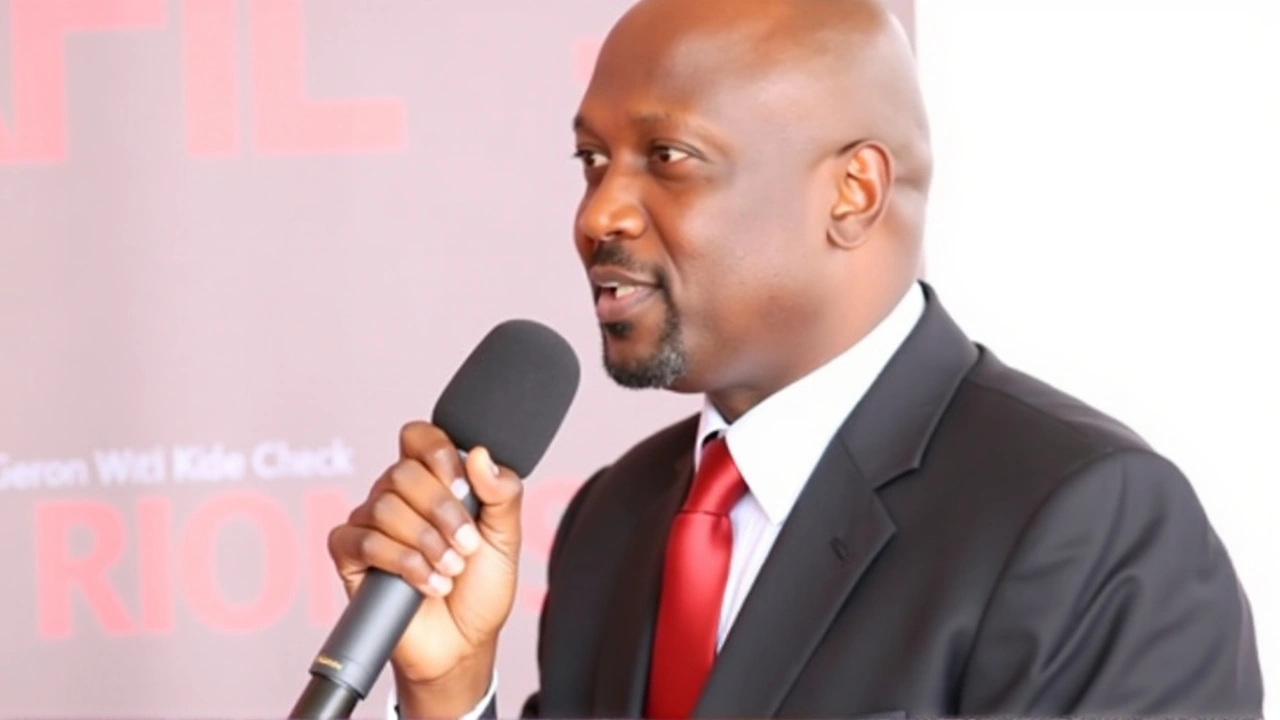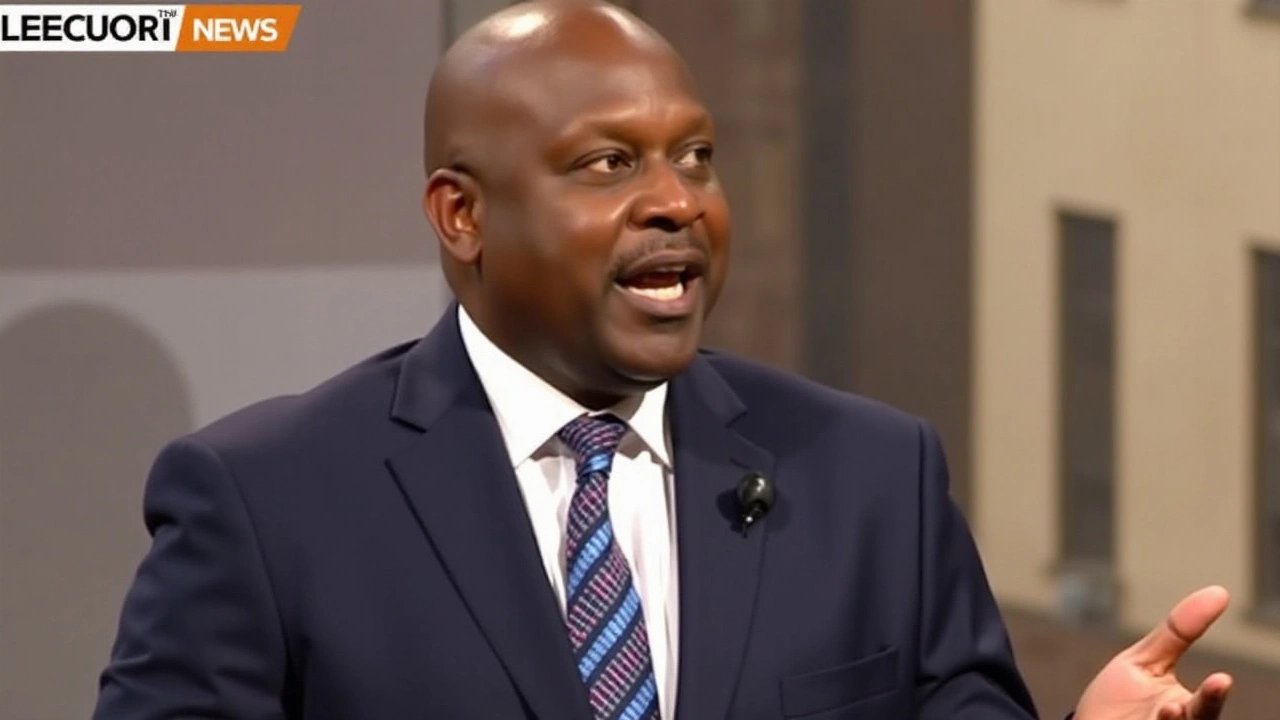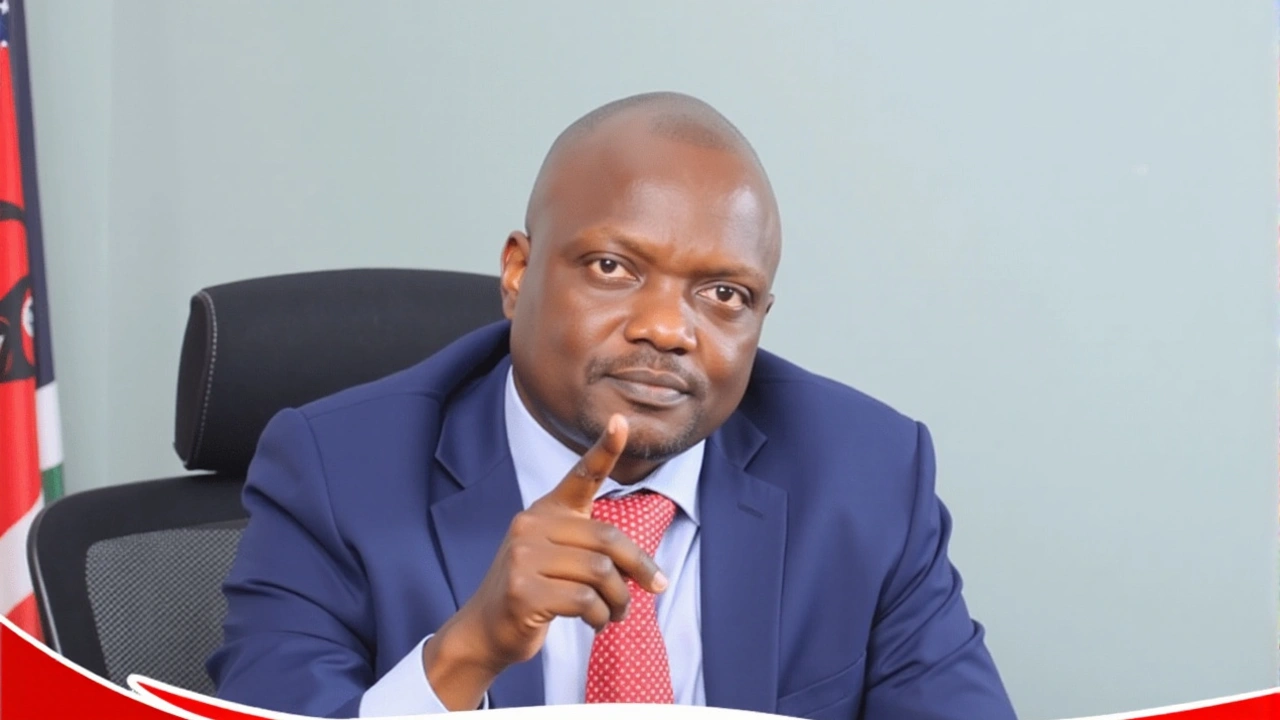
Moses Kuria Asserts Claim on Broad-Based Government Concept
In recent political developments, former Public Service, Performance, and Delivery Management Cabinet Secretary Moses Kuria has made a striking assertion. He proclaimed that the idea of a broad-based government, a concept currently generating much debate, actually originated with him. This assertion has sparked a renewed analysis of his contributions to Kenya’s political framework and how foundational his ideas may have been to the country's current governmental structure.
Amidst these discussions, Kuria’s role in shaping governmental policies cannot be overlooked. Over the years, he has been at the forefront of various political movements and his influence in the political landscape extends beyond just the broad-based government idea. His background in public service has equipped him with a deep understanding of Kenya’s political and administrative machinery, subsequently making his claim significant.
Ongoing Discourse on Government Structure
The discourse on the structure and composition of the Kenyan government is evolving. Different stakeholders, including political leaders, civil society, and ordinary citizens, are engaging in these discussions with a view to realizing a more inclusive governance system. This quest for a broad-based government is driven by the need to have a balanced representation from diverse ethnic, regional, and socio-economic groups within Kenya.
Kuria’s assertion places him at a critical junction in these conversations. His experience in public service and political strategy provides a rich context to his claim. As discussions continue, it will be crucial to assess how his ideas align with the broader objectives of governance reforms. By taking a holistic look at his contributions, one can begin to appreciate the depth of his involvement in the political landscape of Kenya.
Support for Veterans and Families
On another note, the article brings to light another significant issue: the unwavering support provided by retired Kenya Defence Forces (KDF) officers to veterans and families of fallen servicemen. The camaraderie and solidarity among the KDF reflect a strong sense of duty and honor among those who have served the nation. This ongoing support ensures that veterans and their families receive the necessary assistance, acknowledging their sacrifices and service to the country.

DCI Seeks Custodial Orders in Incitement Case
The Directorate of Criminal Investigations (DCI) has been active in recent investigations, seeking custodial orders for five individuals in an incitement case. This step signifies the agency’s commitment to resolving issues of criminal nature with efficiency and diligence. The pursuit of custodial orders is an indication of the DCI’s intent to thoroughly examine and address the elements of incitement, ensuring that justice prevails in the face of such charges.
Presidential Pledge on Corruption Cases
Corruption remains a pressing issue in Kenya, and the President has made a significant pledge to expedite the resolution of corruption cases within six months. This commitment to collaborate with the criminal justice system underscores a renewed effort to tackle corruption head-on. The President’s promise is a call to action for all government departments and the judiciary to work together towards eradicating corrupt practices and promoting transparency and accountability in governance.
Norwegian Embassy's Announcement on Regional Cooperation
In an international context, the Norwegian Embassy has announced a strategic shift in its cooperation with Kampala. Moving forward, the Norwegian development agency, Norad, along with another regional mission, will take the lead in managing these collaborations. This change aims to optimize the efficacy of developmental partnerships and ensure that Norway’s contributions to the region yield meaningful and sustainable impacts. Such a transition reflects a broader trend of adapting international cooperation frameworks to better meet local needs and dynamic geopolitical landscapes.

Testimony in Shakahola Massacre Case
The article also touches on a harrowing testimony related to the Shakahola massacre, a terrorism-related case that has gripped the nation. The testimonies presented in this case highlight the sheer brutality and depth of the incident, bringing to light the critical need for justice and accountability. Such cases underline the importance of a robust legal framework to address and deter acts of terrorism, ensuring the safety and security of all Kenyan citizens.
KNUT's Potential Service Withdrawal in Nyeri
In the educational sector, the Kenya National Union of Teachers (KNUT) in Nyeri is contemplating a withdrawal of services. This potential move comes amid ongoing concerns about the working conditions and remuneration of teachers. The union’s considerations reflect broader issues within the education system, prompting a need for dialogue and reforms to address the grievances of educators. Ensuring that teachers are adequately supported and motivated is paramount for the overall development of Kenya’s education sector.
Archbishop Muheria on Political Turbulence
Archbishop Muheria’s comments on the political turbulence in Kenya bring a moral perspective to the national discourse. He attributes the unrest to a lack of integrity among political leaders. His reflections serve as a reminder of the ethical dimensions of leadership and the importance of integrity and honesty in public office. The archbishop’s voice adds to the chorus calling for higher standards of accountability and moral responsibility in governance.
As the nation navigates these multifaceted issues, from political reform to social justice, and international cooperation to educational reforms, the overarching theme remains the pursuit of a more just, equitable, and well-governed society. The involvement of various stakeholders, including influential figures like Moses Kuria, highlights the collective effort required to address these challenges and achieve sustainable progress.
Write a comment